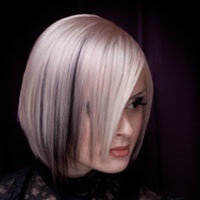Whether we have plenty or none at all, we set quite a lot of stock by our locks. We take care of it, lavish love upon it and mourn its departure. Well, except when it’s in a nostril or an ear, in which case we will happily throw it a going away party.
Despite all we do to try to keep it as healthy as possible, some of us may be more prone to losing our hair than others. Is there anything to be done? We’re going to take a look at some hair care do’s and don’ts as well as some of the biggest causes of hair loss to demystify your follicles.
The usual lifespan of a hair is around about three years, and the hair follows the following stages:
The Anagen Stage: The growing stage, which lasts about three years.
The Catagen Stage: The regression period of the hair, this usually lasts about two weeks.
The Telogen Stage: The final stage. The follicle becomes dormant for about 3 months, during which time the hair falls out. In a healthy scalp, this is followed by the anagen stage in a cycle of renewal.
How fast or slow our hair grows is largely affected by our genes, but hair, on average, grows about half an inch a month.
More hair is shed in summer than in winter.
As we age, the above-mentioned cycle degenerates and starts to malfunction, and the progress of this degeneration and malfunction can differ greatly from person to person.
Causes of Hair Loss
There are as many factors in hair loss as there are hairs on your chinny chin chin: for every habit you can change or supplement you can take to encourage a full head of hair there’s a genetic component that you unfortunately have no control over. We all have a genetic composition that is either prone towards hair loss or a thick mane, and any number of conditions and problems we accumulate over the years can add to our misfortune.
Even so, practice good hair habits and eat right, and you’re giving your hair its best chance at robust beauty.
Genetics
Hair loss in men and women behaves slightly differently and can trace its cause to various origins. In men, we call this Male Pattern Baldness and it tends to affect the hairline and crown most visibly. This can be caused either by run-of-the-mill genetic tendencies which come- counterintuitively- from your mother’s side of the family, or can be spurred by normal changes and imbalances.
In women, Female Pattern Baldness tends to occur more uniformly across the head and present as general thinning and is much less understood scientifically. Causes can range from hormonal imbalances to illnesses or outside factors and isn’t always linked to heritable genetics.
Illness
It may well be quicker to list conditions that do not affect our hair- our general health and well-being is reflected almost directly in the health of our hair, and as such anything bringing us down tends to be bad for it. There are however a few likelier candidates if you’ve noticed thinning or unusual balding.
Chemotherapy, while not universally causing hair loss, carries with it quite often the falling out of bodily hair. This is unfortunately not preventable, although there have been experiments that have tried to keep the medication from reaching the hair follicles by use of head bands. As you may expect, this resulted in little more than headaches and grumpy patients! At least we know that your hair will grow back after treatment, although you may expect a change in texture afterwards.
Thyroid problems, hormonal imbalances and nutritional deficiencies all tend to leave us bereft, and any condition that comes with tissue scarring will also cause at least nominal hair loss. Male sex hormones, or androgens, play a big role in the thinning of hair in both sexes and can be present either as a result of a medical condition (in women) or naturally as a result of puberty (in men.)
Diet
As much as we hate to admit it, a steady diet of Merlot and cake does not a healthy head make. Almost any deficiency in nutrients can be bad for your hair although low iron, B vitamins, Selenium, Zinc and Copper levels may be at the front of that list. Any doctor would recommend a balanced diet and moderate (at least!) exercise, but we all know that we can incur nutritional losses even when we try our best and happily there’s supplements available for anything we lack.
And as with anything, stress is bad news. Besides wanting to rip it out, stress triggers the release of cortisol and other hormones that speed up hair loss. May we recommend an extended holiday and a good book?
Handling
Modern hair products are usually formulated to have the least possible detriment to both our hair and scalp and well as the environment, but anything used in excess will be at least partially to blame if we experience hair loss. Heat can damage our hair if not affect its future growth, while any tension as a result of high-and-tight ponytails or repeated pulling in styling can put stress on the follicle and cause the actual shaft to fall out ahead of schedule.
Prevention and Treatment for Hair Loss
Without knowing the exact cause of our hair loss, the best we can do is to care for our hair, scalp and bodies as best possible. There are several nutrients and supplements that can mitigate hair loss and promote a healthy scalp.
Variously, Vitamin A, Vitamin D, Vitamin E, Vitamin B Complex, Ascorbic Acid (Vitamin C), Magnesium and Iron are recommended as part of a balanced diet to encourage skin, follicle and hair shaft strength. If you’re looking to expand on the usual suspects and give your hair an even better chance, kelp, Manganese Glycerophosphate, Biotin, Inositol, Choline, PABA, Selenium, Betaine, Rutin, D L-Methionine, L-Cysteine and Bioflavonoids have all been noted as having qualities that help or support our hair growth and the various conditions that might be leading to its loss.
Our modern diet may be deficient in all the above-mentioned nutrients and a well balanced supplement may be called for.
See some of the notes and references at the end of the article for research on various compounds and their effectiveness for more info.
Of course, there are more practical applications that have a tremendous impact. Treating your hair and scalp with certain oils has been proved to be clinically effective and will leave it looking and feeling lovely.
The following herbs are thought to help prevent hair loss and are included in many hair care products.
We sell a Herbal Shampoo and Herbal Conditioner on our website which contain the following and can be viewed by clicking their links.
Chamomile, Green tea, Calendula, Rosemary, Sage, Horsetail, Thyme, Lavender and Tea tree oils each have unique properties that are beneficial to our hair and scalp. As included in our range of herbal products as well as our Hair and Scalp oil blend, they can be used topically to gently and safely provide the best chance for your crowning glory- your hair.
References and Studies
A study done by Jamieson M and Ormerod AD at the Department of Dermatology, Aberdeen Royal Infirmary, Foresterhill, Scotland, using essential oils of Thyme, Rosemary, Lavender and Cedarwood diffused into a base of Jojoba and Grapeseed oil, found that the participants using the oil in a massage treatment to the scalp showed a significant improvement in their alopecia areata (hair loss) compared to the participants that only used a plain carrier oil massage blend. It was concluded that the results showed “aromatherapy to be a safe and effective treatment for alopecia areata. Treatment with these essential oils was significantly more effective than treatment with the carrier oil alone”.
PMID: 9828867 [PubMed – indexed for MEDLINE]
We sell a scalp massage blend of essential oils of rosemary, bay, cedarwood, patchouli, cypress and ylang-ylang on a carrier of jojoba and grapeseed oils called Hair and Scalp Blend.
In May 2007, a study was published that compared the safety and efficacy of topical minoxidil (sold as Rogaine™ or Regaine™) and topical alfatradiol with regards to their influence on hair growth. The conclusion of the study was that minoxidil can induce an increase in hair density and hair thickness, whereas treatment with alfatradiol results in deceleration or stabilization of hair loss.
(J Dtsch Dermatol Ges. 2007 May
Blume-Peytavi U, Kunte C, Krisp A, Bartels NG, Ellwanger U, Hoffmann R. Comparison of the efficacy and safety of topical minoxidil and topical alfatradiol in the treatment of androgenetic alopecia in women.
Department of Dermatology and Allergy, Charite- Medical University, Berlin, Germany. PMID: 17451383 [PubMed – in process])
Another study reported that minoxidil induces hair growth in male pattern baldness and prolongs the anagen phase. This coupled with All-trans retinoic acid (ATRA) is reported to act synergistically with minoxidil in vivo, enhancing denser hair growth.
(J Korean Med Sci. 2007 Apr;22
Kwon OS, Pyo HK, Oh YJ, Han JH, Lee SR, Chung JH, Eun HC, Kim KH. Promotive effect of minoxidil combined with all-trans retinoic acid (tretinoin) on human hair growth in vitro.
Department of Dermatology, Seoul National University College of Medicine, Laboratory of Cutaneous Aging and Hair Research, Clinical Research Institute, Seoul National University Hospital, Institute of Dermatological Science, Seoul National University, Seoul, Korea.
PMID: 17449938 [PubMed – as supplied by publisher])
The department of Dermatology, Seoul National University College of Medicine, Korea, did a study which showed that Minoxidil enhances hair growth by prolonging the anagen phase and induces new hair growth in androgenetic alopecia (AGA), whereas retinol (vitamin A derivative) significantly improves scalp skin condition and promotes hair growth.
(Biol Pharm Bull. 2007 Jan;
Yoo HG, Chang IY, Pyo HK, Kang YJ, Lee SH, Kwon OS, Cho KH, Eun HC, Kim KH. The additive effects of minoxidil and retinol on human hair growth in vitro.
Department of Dermatology, Seoul National University College of Medicine, Korea.) PMID: 17202653
The National Hair Council published the findings of 28 years of rigorous testing and research of the use of specific proteoglycans in restoring hair loss.
https://worldhaircouncil.com/hairloss-facts/scientific-report/

